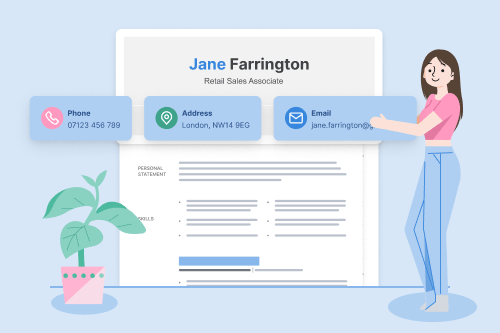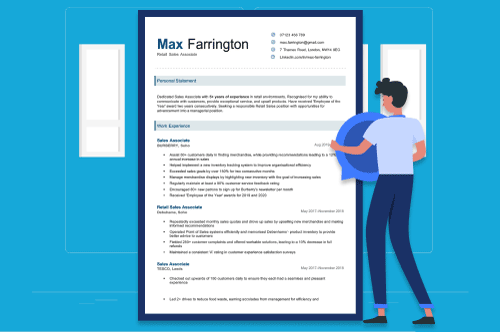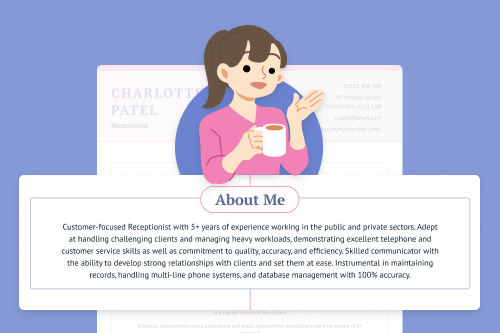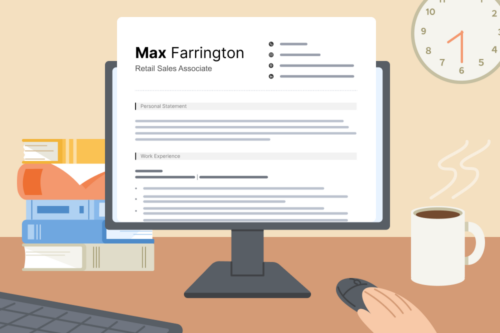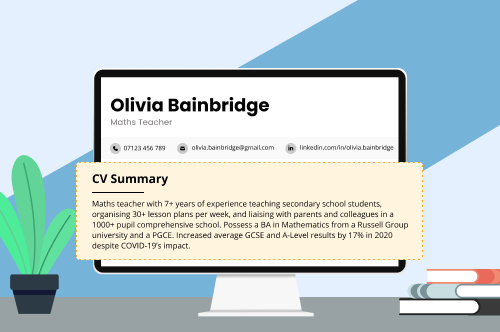Adding personal details on CVs is important as it lets employers know who you are and how to reach you to schedule an interview. So put your personal information — name, phone, and email — at the top of your CV.
You can put your contact details in a bulleted or centred list — whatever works best in your CV’s layout.
Here’s an example of personal details on a well-written CV:
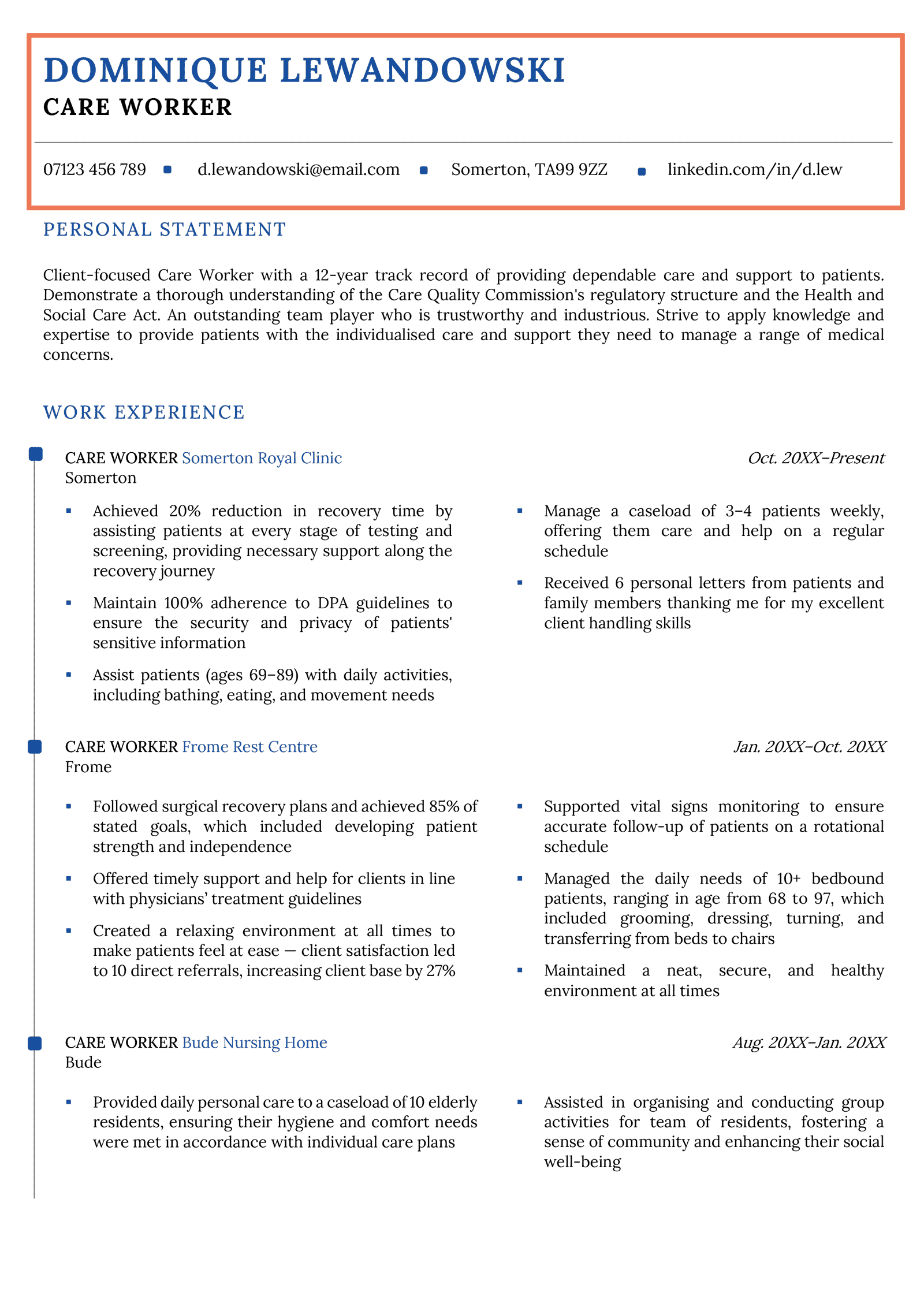
You can download the template above and add your details, or keep scrolling to learn what to add, remove, or consider including on your CV:
Include these personal details on a CV
- name
- phone number
- email address (a professional one, e.g., jennifer.saunders@email.com)
Remove these personal details from your CV
- date of birth/age
- nationality
- sex or gender identity
- sexual orientation
- your photo
- relationship status
- political party
- National Insurance number
You can state that you have the right to work in the UK on your CV. Employers will gather that documentation if they decide to hire you, so keep hold of it until then.
Frequently asked questions about CV personal information
Still unclear about what personal details belong on your CV? Here are answers to 4 of the most common questions about this topic:
1. Is it ever okay to include extra personal information on my CV?
There are certain lines of work or types of CVs that do require additional personal details. For instance, if you’re writing a:
- resume for work in India, you’ll include a personal profile with your date of birth, gender, nationality, and photo
- marriage CV (also called a marriage biodata), you’ll fill it with personal details, from your eye colour to your expectations for a potential partner
- CV for acting or modelling work, you should use a photo CV and list your physical attributes (height, weight, etc.)
2. Is it safe to answer equal opportunities questions?
Many employers include optional equal opportunities questionnaires as part of their job applications. Whether or not you choose to answer the questions shouldn’t affect your chances of landing a job interview.
Keep in mind that employers are legally prohibited from discriminating against applicants based on their race, religion, gender, sexual orientation, and other identifying characteristics. However, employers are allowed to view applicants with protected characteristics more favourably than those with similar qualifications but no protected status.
So if you feel uncomfortable answering demographic questions, skip that part of the application. Or research the company to get a better read on their hiring practices.
3. Should you include your pronouns on your CV?
Redditors are asking this question.
Adding your pronouns to your CV is optional. However, we recommend leaving them off: don’t give employers an opportunity to discriminate against you at this stage in the job hunt.
Additionally, your gender identity doesn’t affect whether you’re qualified for the job — a recruiting manager’s priority. So you’re better off adding more achievements to your work experience section instead, backed up with hard numbers.
4. Can I use a different version of my name on my CV?
Quora users have questions about using shorter versions of names, nicknames, or even more British-sounding names.
Under British law, you can use any name you like. So yes, it’s fine to shorten your name, use a nickname, or even use a new name on your CV.
